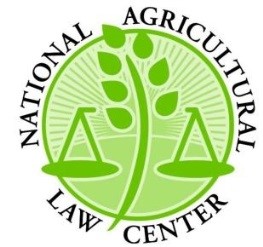Written by: Amie Alexander, JD/MPS Candidate, William H. Bowen School of Law
The Dairy Business Association, Inc. filed suit against the Wisconsin Department of Natural Resources (DNR) on July 31, 2017 in Brown County Circuit Court in the State of Wisconsin. The Dairy Business Association – a nonprofit organization comprised of Wisconsin dairy farmers, milk processors, vendors, and related businesses – challenges state DNR regulations requiring large farms to obtain a Wisconsin Pollutant Discharge Elimination System Permit regardless of whether the farm discharges or intends to discharge pollutants. The Dairy Business Association seeks both a declaratory judgment against DNR as well as an injunction preventing the continued enforcement of the challenged rules. You can read the opinion in its entirety here.
Background of this Suit
The Clean Water Act regulates the discharge of pollutants into surface waters throughout the United States (See 33 U.S.C. 1251 et seq.). The Environmental Protection Agency (EPA) is responsible for administering the national permitting program, the National Pollutant Discharge Elimination System, which controls discharges to waters of the United States. The Clean Water Act was designed to be administered by the states through delegation by the EPA.
Wisconsin was delegated authority to implement the Clean Water Act and issue permits under the national permitting program by the EPA in 1974. These permits are referred to as Wisconsin Pollutant Discharge Elimination System (WPDES) permits. The Wisconsin legislature has delegated some of this authority to the DNR, at issue here.
The Dairy Business Association’s Claims
The Dairy Business Association alleges claims against DNR dealing with permitting requirements for Concentrated Animal Feeding Operations (CAFOs) and a violation of rulemaking procedure regarding feed storage leachate runoff and calf hutch lot runoff.
The Dairy Business Association claims DNR’s permitting regulations for Concentrated Animal Feeding Operations (CAFOs) are illegal because DNR requires CAFOs to apply for a permit from the EPA even if it does not or does not intend to actually discharge into waters of the United States. Federal law provides a CAFO is only required to apply for a permit if it has an actual discharge (See 40 C.F.R. § 122.23(e)). The Dairy Business Association claims this DNR regulation violates Wisconsin state law because (1) the regulation is more stringent than the federal regulation and in violation of Wis. Stat. § 283.11 and (2) the plain language of Wis. Stat. § 283.31 only makes the actual discharge into waters of the state unlawful without a permit.
Next, the claimants allege that new standards for feed storage leachate runoff management that were announced in proposed guidance are actually being applied as rules in which proper rulemaking procedure was not followed. The new standards are more stringent on the allowance of discharge during a 24-hour rain event and are more stringent than the federal counterpart. The Dairy Business Association claims that because proper rulemaking procedure was not followed as dictated in Wis. Stat. ch. 227, the rule is therefore void and unenforceable.
Similarly, claimants allege that new standards regarding calf hutch lot runoff are being applied as rules, but the proper rulemaking procedure was not followed by DNR. This guidance would include calf hutches under a “reviewable facility or system” under Wis. Admin. Code NR § 243.03(56), requiring that calf hutch lots be subject to engineering plans and review and approval. The Dairy Business Association claims this guidance creates a new standard that is a rule not legally promulgated and is therefore void and unenforceable.
The Dairy Business Association asks the Court to declare these three actions by the DNR void and unenforceable, as well as to issue injunctions preventing the DNR from enforcing the rules contained in the guidance documents. You can read the full complaint here.
